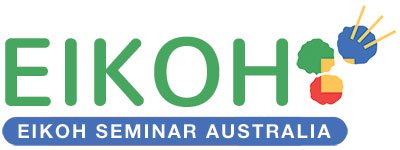Preschool vs Kindergarten vs Daycare: What’s the Difference?

The terms Preschool, Kindergarten, and Daycare often overlap and are used interchangeably – however, they can mean very different things.
Early childhood care in Australia is a big issue for many households — over 48% of children 5 years old and under, and 33% of children 12 years old and under attend child care in Australia, according to AIHW’s 2022 report.
As a parent, finding the right type of child care is not just about the kind of care they need, but also about giving them a head start in both development and education. This guide will highlight the key differences between preschool, kindergarten, and daycare services, so you can determine the right route for you and your family.
Understanding Preschool in Australia
The term “preschool” can be broken up into “pre-“ meaning “before”, and “school”. Naturally, the perception of most parents surrounding preschools is that they provide foundational learnings for young children in preparation for their eventual transition into primary school.
In a nutshell, that is what preschools offer – but it’s not just about preparation. Preschools are designed for young children between the ages of 3-5 years, the age where they start becoming receptive to learning new concepts and about their environment.
So yes, there is some amount of teaching involved, but it’s not so much about how much they learn; rather, rather, how they learn it.

All preschools across Australia make use of the Early Years Learning Framework (EYLF) set up by the Australian Government as a guide for how children are exposed to learning at this stage. Play-based learning is a big part of the EYLF — children in preschools are given opportunities to develop and explore their skills through the act of playing. These include:
- Fostering communicative skills
- Developing emotional awareness
- Nurturing natural curiosity and inquisitiveness
- Exposure to language and numbers
- Encouraging creativity
- Exercising motor skills and independent movement
But let’s not forget that preschools do also offer a level of childcare service in addition to providing education. Essential care such as cleaning up after messes, providing food and snacks, general and constant supervision are also typically provided throughout the duration of a preschool day. Generally, preschool hours typically run for a shorter period (such as 9am – 3pm), but this will ultimately depend on the centre’s program or class structure.
To summarise: preschools generally offer a combination of educational programs and child care, though the focus is usually on learning.
Kindergarten in the Australian Context
Kindergartens in Australia share some similarities with preschools in regard to the education value that they offer to children, but their definition differs more between states.
In NSW, kindergarten is the first year of primary school for children aged 5 and above. In Victoria, on the other hand, kindergartens are government funded programs that are extended to children 3 years and above to prepare them for their transition to school.
Kindergartens can sometimes also refer to child care centres that offer both preschool services and day care services. We’ll talk about day care below – but it’s important to note that the purpose of kindergartens can vary depending on where you are in Australia.
Overview of Daycare in Australia
Daycare in Australia is rather straightforward — it’s a service that is designed to look after your child while you’re unable to do so, whether it’s because of work or other commitments. While kindergartens and preschools have a focus on targeted learning, daycare does not have such a strong focus on education. That’s not to say that daycares do not provide learning programs to engage children – they do, but in a free form structure where children explore on their own.
There’s also no age limit for enrolling your child in a daycare. While preschools will only accept children from 3 -5 years, daycare services will take in babies and toddlers.
Daycare also runs on a longer day schedule compared to preschool; a typical day service can run from 7am to 6pm, covering usual working hours. Parents can also choose which days of the week or year they need daycare, while preschools require attendance throughout a 5-day week.

Preschool vs Kindergarten vs Daycare – Practical Guidance for Parents
So, which child care service should you choose for your child? It really depends on your child’s age, their readiness for independent learning, and your family’s situation.
Daycare is the obvious choice for households where parents are unavailable to step away from work to watch over their child. That way, you can have peace of mind that your child is in good hands while you’re away at work. It’s also a good option for families that need help with care during the child’s often busy and overwhelming early years.
Preschool or kindergarten is the option for parents who want to equip their children with the right foundational skills before they enter the school system. Despite being a voluntary program in most states, more and more parents are seeing preschool as a critical part of their child’s development and learning.
At Eikoh Seminar, we believe that each of these services play an important role in raising a child, which is why we offer both preschool and long day care services at our childcare and kindergarten centres. We have locations all across Sydney, NSW in Normanhurst, West Ryde, St Ives Chase, and Roseville — contact us today to find out more about our childcare services today!
